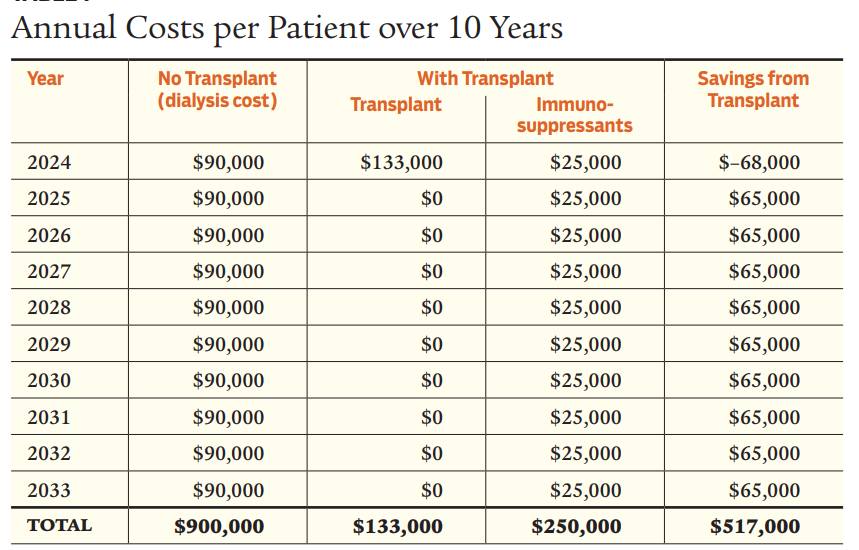The Living Kidney Donor Support Act would benefit tens of thousands of Americans and save billions of tax dollars.
This organ shortage is costly to the people who end up waiting longer for transplant or who die awaiting one, and to taxpayers who pay most of the health care costs of people with end-stage kidney disease.
Transplants cost $133,000, and immunosuppressant medications cost $25,000, while dialysis costs $90,000 a year. That means that in Year 1 the government pays $133,000 per transplant and $25,000 for immunosuppressants —but stops paying dialysis costs. For the next nine years, it continues paying for immunosuppressants instead of dialysis, realizing $65,000 in savings each of those years the patient is not on dialysis. In essence, transplant costs would be paid off in two years and produce eight years of savings, or just over $500,000.

